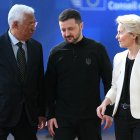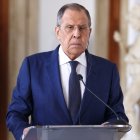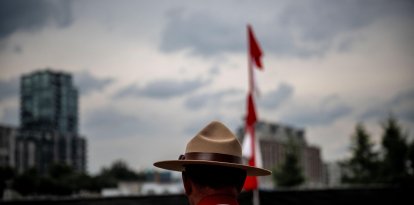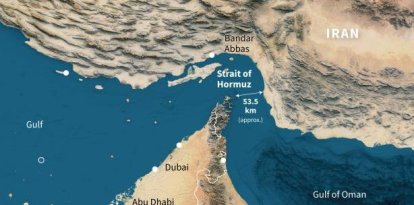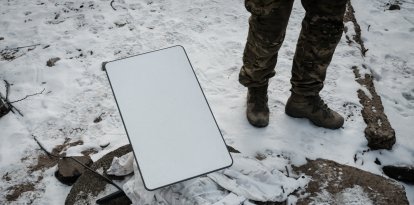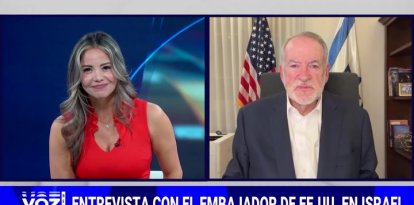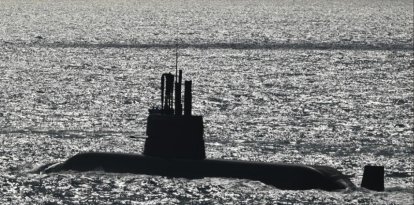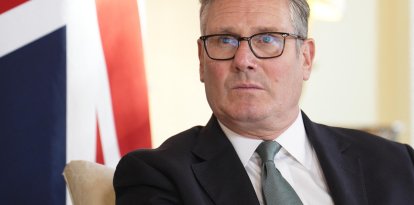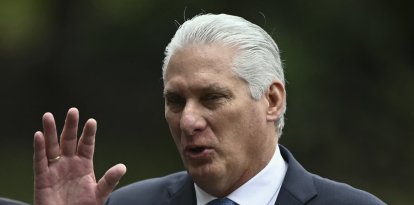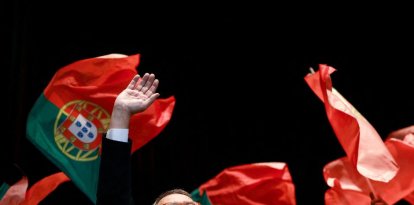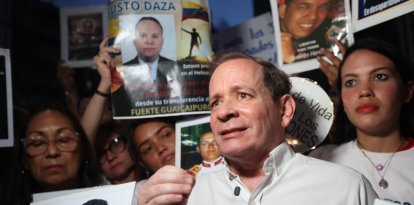Marco Rubio and the Kremlin coincide in their vision of the conflict in Ukraine: 'A proxy war between nuclear powers'
The secretary of state did an interview Wednesday to assess the current situation of the Ukrainian conflict. This is the second time in a few weeks that Moscow has openly agreed with Washington.
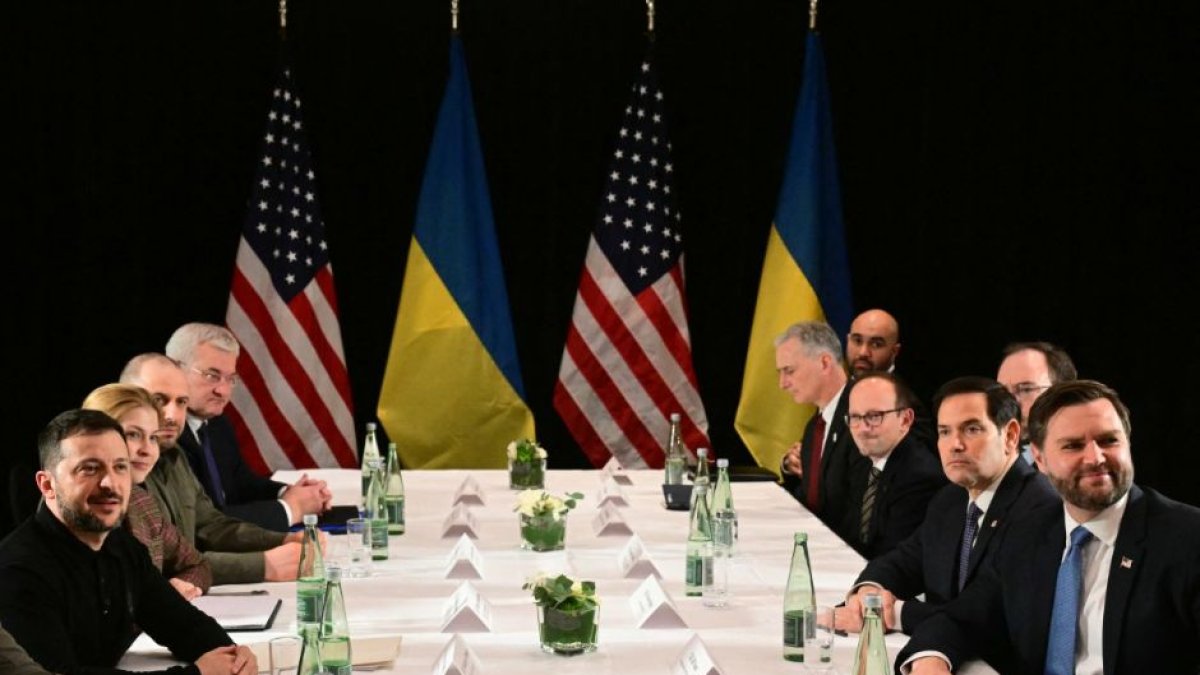
J. D. Vance (right), Marco Rubio (2nd from right), Volodymyr Zelensky (left), in Munich.
Secretary of State Marco Rubio stopped by Fox Wednesday where he assured that the conflict in Ukraine is "a proxy war between nuclear powers: the United States, helping Ukraine, and Russia." This Thursday, the Kremlin has stated that it is satisfied with that definition.
"It’s been very clear from the beginning that President Trump views this as a protracted, stalemated conflict," the secretary of state declared during his interview. "It needs to come to an end," he added.
Kremlin spokesman Dmitry Peskov said Moscow agreed with Rubio's assessment and noted that Russia has said many times that the war is a conflict between Russia and the "collective West" led by the United States.
"We can and will agree with that, and we do. That's the way things are. We have said it repeatedly. We have said that this is really a conflict between Russia and the collective West. And the main country of the collective West is the United States of America," Peskov said, as reported by Reuters.
This is not the first time in recent weeks that Moscow has agreed with the Trump administration's stance. The week before, Peskov assured that the foreign policy vision of the White House aligns with the Kremlin's agenda as far as Ukraine is concerned.
The arrival of Donald Trump to the presidency has favored a return to U.S.-Russia dialogue, after channels of communication were cut during the previous administration due to the war in Ukraine.
The apparent attunement between Moscow and Washington worries the European Union and Ukraine, which are not satisfied with the conditions that have so far been put on the table about possible peace in Ukraine. Ukrainian President Volodymyr Zelensky, together with J.D. Vance and Donald Trump, had a tough clash last week at the White House after which the signing of the agreement on rare earth minerals, key to peace negotiations in Ukraine, was postponed.
Since then, Zelensky has turned to the European Union, the United Kingdom and Turkey, who have maintained the same position on support for Ukraine since the start of the conflict. The 27 leaders of the European bloc and the heads of its institutions met Thursday in Brussels for an extraordinary summit with Zelensky to discuss the next steps toward a possible resolution.
They are not ruling out the deployment of a military peacekeeping mission on Ukrainian soil. In this regard, U.K. officials assured AFP that they are in talks with some 20 countries willing to offer troops to such a peacekeeping mission, which has the approval of Kiev but the rejection of Washington and Moscow.





